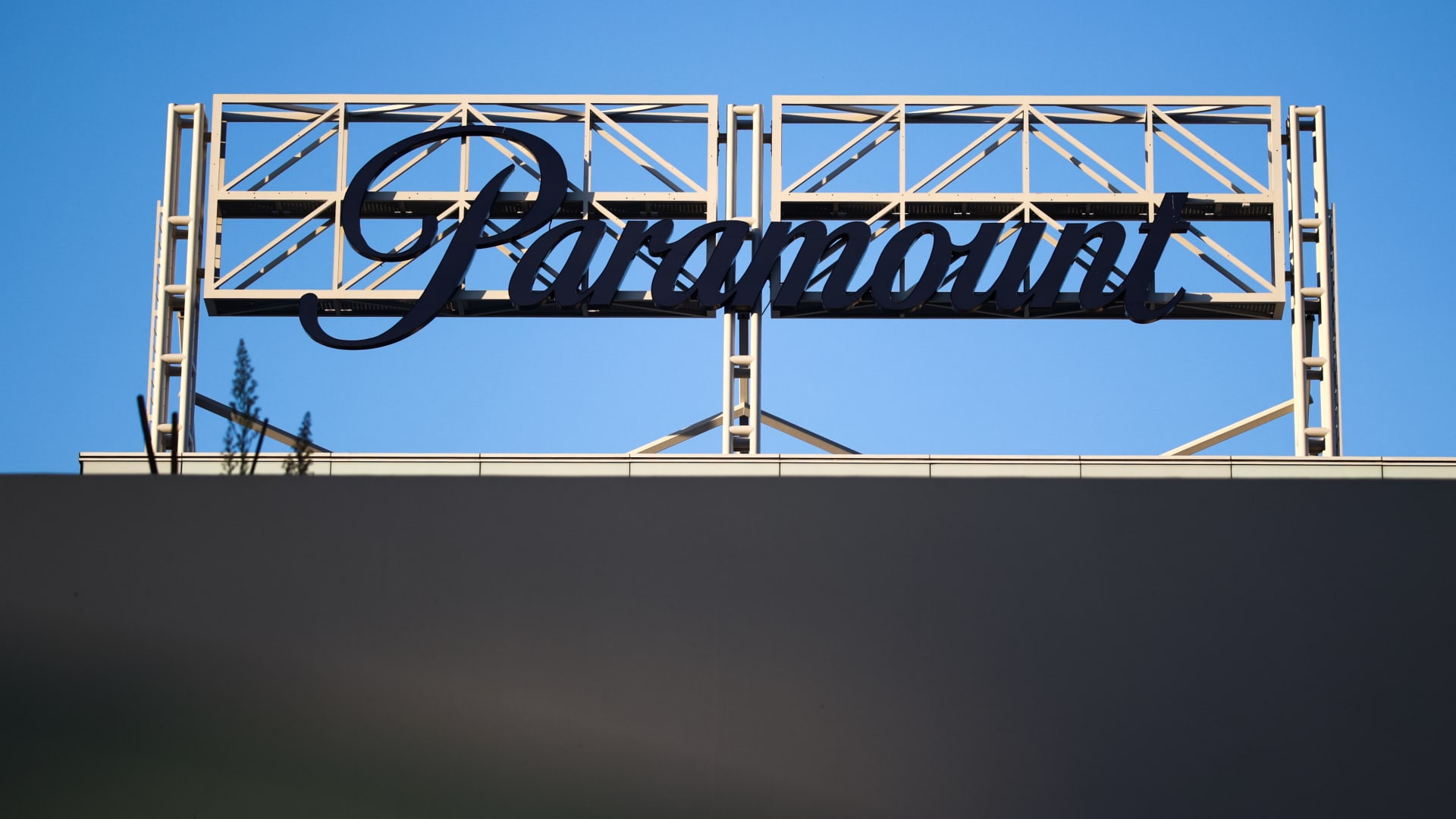Major U.S. stock indexes were mostly higher Tuesday, with the S&P 500 extending a push into record territory as shares of some big banks got a lift after announcing dividend hikes.
How are stock benchmarks performing?
-
The Dow Jones Industrial Average
DJIA,
+0.27%
rose 134.98 points, or 0.4%, to 34,418.25. -
The S&P 500
SPX,
+0.11%
gained 6.85 points, or 0.2%, to trade at 4,297.46. -
The Nasdaq Composite
COMP,
-0.03%
was up 4.22 points, or less than 0.1%, at 14,504.73.
On Monday, the Dow fell 150.57 points, or 0.4%, closing at 34,283.27, while the S&P 500 added 9.91 points, or 0.2%, to end at a record 4,290.61, and the Nasdaq Composite Index climbed 140.12 points, or 1%, finishing at a record 14,500.51.
What’s driving the market?
Investors remain buoyed by optimism about the economic recovery from the COVID pandemic, analysts said. The U.S. Conference Board on Tuesday said its consumer confidence index leapt to 127.3 this month from 120 in May, hitting its highest level since just before the pandemic took hold in March 2020.
“The June increase in headline confidence has pushed the index back to the trend in place before Covid struck; a remarkable shift, given that payrolls are still some 10 million lower than we would have expected if the pandemic hadn’t happened,” said Ian Shepherdson, chief economist at Pantheon Macroeconomics, in a note.
“But people are responding to record highs for asset prices and, presumably, to the very low recent COVID case numbers,” he said.
The march to new highs, however, is creating its own jitters, as investors ponder what’s left to fuel further advances, analysts said.
A recent Citigroup survey indicated that investors are more fearful of a pullback in equities than they are hopeful about a continuing rally though. The Citigroup survey of its clients indicated that investors are most worried about Federal Reserve policy and inflation.
While “plenty of good news” is priced into markets, and the potential remains for near-term volatility, investors shouldn’t be fearful just because markets have hit a string of new highs, said Mark Haefele, chief investment officer at UBS Global Wealth Management, in a Tuesday note.
Data going back to the 1960s shows that stocks tend to do better than average after hitting all-time highs, while a broadening global economic recovery and prospects for continued earnings growth provide a positive backdrop, he said. And despite a shift in tone by the Federal Reserve at its policy meeting earlier this month, monetary policy remains very supportive, Haefele said.
Need to Know: A big market transition is coming. Here’s where investors should steer next, says this strategist.
“U.S. markets are grinding higher along the path of least resistance,” Neil Wilson, chief market analyst at Markets.com, said.
Meanwhile, five of the six largest U.S. banks said Monday that they would increase dividends after the Federal Reserve last week lifted previous temporary restrictions on dividends and share buybacks.
In U.S. economic data, home prices increased 14.6% on an annual basis in April, according to the Case-Shiller Home Price Index. A report from the Conference Board on U.S. consumer sentiment is due at 10 a.m. Eastern.
Among Fed speakers, Richmond Fed President Thomas Barkin said Tuesday that he was pretty optimistic that the U.S. labor market would unclog by the end of summer. Last week, he said that he thinks U.S. inflation pressures are temporary but the central bank needs to be careful and watch prices closely. Barkin is a voting member of the Fed’s rate-setting committee this year.
Meanwhile, the World Bank raised its forecast of China’s economic growth this year to 8.5% from 8.1% and said Tuesday that a full recovery requires progress in vaccinations against the coronavirus.
On the public health front, the World Health Organization is recommending that fully vaccinated people continue to wear face masks in public, breaking with the guidance offered by the Centers of Disease Control and Prevention. The WHO is concerned about the rapid spread of the highly infectious delta variant of the virus that is racing across the world.
Which companies are in focus?
-
United Airlines Holdings Inc. UAL said Tuesday it is purchasing 270 new Boeing BA and Airbus SE aircraft to its fleet, in its biggest ever order and the largest by an individual carrier in the last decade, making a strong bet on a recovery in travel. United shares were flat, while Boeing rose 0.8%; Airbus
AIR,
-0.32%
shares fell 0.2% in Paris. - Morgan Stanley MS said late Monday it would double its quarterly dividend to 70 cents a share, from 35 cents a share, beginning with the dividend expected to be approved by the board in the third quarter. Shares rose more than 4%.
-
In other bank dividend moves, Goldman Sachs Group Inc.
GS,
+1.85%
hiked its payout to $2 from 1.25 a share, JPMorgan Chase & Co.
JPM,
+0.62%
to $1 from 90 cents, Bank of America Corp.
BAC,
-0.61%
to 21 cents from 18 cents, and Wells Fargo & Co.
WFC,
-0.79%
doubled its dividend to 20 cents a share. Goldman and JPMorgan shares rose, while Bank of America and Wells Fargo lost ground. Citigroup Inc.
C,
-1.29%
was the only large American bank to keep its dividend unchanged, at 51 cents; its shares fell 1.2%. -
Antitrust investigators at the U.S. Justice Department are looking at Google‘s digital ad market practices, Bloomberg News reported, citing people familiar with the matter. Shares of Google parent Alphabet Inc.
GOOG,
-0.92%GOOGL,
-0.58%
fell 0.4%. -
Facebook Inc.
FB,
-1.55%
finished at a record on Monday to take its market capitalization above $1 trillion for the first time after a federal court on dismissed a Federal Trade Commission antitrust lawsuit that would have split up the social-networking giant, as well as a similar suit from 48 state attorneys general. Shares fell 1.4% on Tuesday.
What are other markets doing?
-
The yield on the 10-year Treasury note
TMUBMUSD10Y,
1.490%
rose 1.9 basis points to 1.494%. Yields and debt prices move in opposite directions. -
The ICE U.S. Dollar Index
DXY,
+0.12%,
a measure of the currency against a basket of six major rivals, was up 0.3%. -
Oil futures turned higher, with the U.S. benchmark
CL00,
+0.67%
up 0.6% at $73.33 a barrel, while gold futures
GC00,
-1.05%
were down 1.5% at $1,753.50 an ounce. -
In European equities, the pan-Continental Stoxx 600
SXXP,
+0.37%
and London’s FTSE 100 each rose 0.4%. -
In Asia, the Shanghai Composite
SHCOMP,
-0.92%
and Hong Kong’s Hang Seng Index
HSI,
-0.94%
each fell 0.9%, while Japan’s Nikkei 225
NIK,
-0.81%
was off 0.8%.





